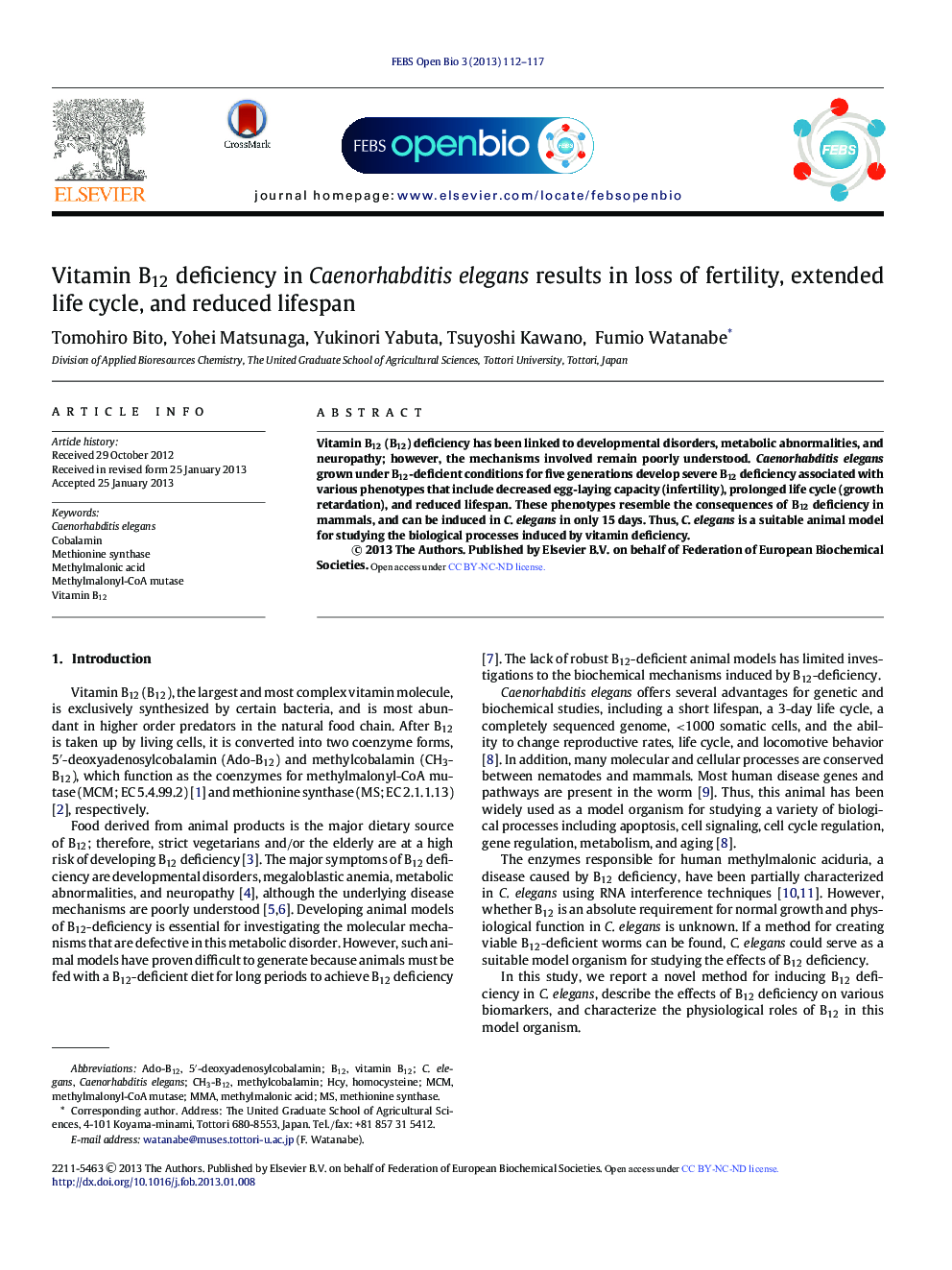| Article ID | Journal | Published Year | Pages | File Type |
|---|---|---|---|---|
| 1981771 | FEBS Open Bio | 2013 | 6 Pages |
Vitamin B12 (B12) deficiency has been linked to developmental disorders, metabolic abnormalities, and neuropathy; however, the mechanisms involved remain poorly understood. Caenorhabditis elegans grown under B12-deficient conditions for five generations develop severe B12 deficiency associated with various phenotypes that include decreased egg-laying capacity (infertility), prolonged life cycle (growth retardation), and reduced lifespan. These phenotypes resemble the consequences of B12 deficiency in mammals, and can be induced in C. elegans in only 15 days. Thus, C. elegans is a suitable animal model for studying the biological processes induced by vitamin deficiency.
Graphical abstractFigure optionsDownload full-size imageDownload as PowerPoint slideHighlights▸ Worms grown under B12-deficient conditions have significantly reduced B12 content. ▸ B12-deficient C. elegans exhibit loss of fertility and a prolonged life cycle. ▸ B12-deficient C. elegans have a significantly shorter lifespan. ▸ B12 is essential for C. elegans and functions as a cofactor for B12-enzymes. ▸ B12-deficient C. elegans could be rapidly generated in only 15 days.
